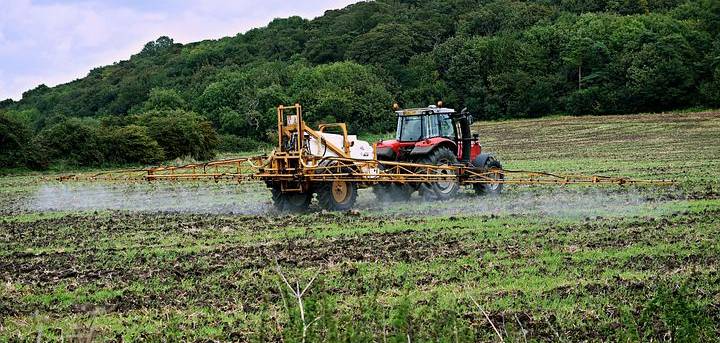|
Without obtaining any input from civil society or the scientific community, the Commission has just published its Communication on ensuring availability and affordability of fertilisers which mainly lists support to farmers and fertiliser producers to maintain business-as-usual.
Disappointingly, it shows the Commission favours short-term benefits of the increased use of harmful synthetic fertilisers, and supports the interests of industry rather than focusing on the urgently needed cuts to the EU’s excessive use of nutrients.
An Action Plan aimed at just that was announced in 2020 (due by end of 2022), but has been quietly delayed, with no clear publication date on the Commission’s agenda.
Célia Nyssens, Senior Policy Officer for Agriculture and Food Systems at the EEB, notes:
“Our addiction to synthetic fertilisers is killing agricultural soils, polluting water and air, and undermining the EU’s strategic autonomy. The solution to these crises lies in achieving Green Deal targets to reduce the use of fertilisers and nutrient losses matched by ambitious additional actions still expected in the Commission’s Integrated Nutrient Management Action Plan (INMAP). With COP 27 underway, the EU must not cave to industry interests, but rather show climate leadership and reaffirm its commitments to the urgent green transition.”
An integral component of the European Green Deal concerns inputs of agricultural production, including fertilisers. But the current use of such nutrients – especially nitrogen, phosphorus and potassium - is unsustainable.
Far from ensuring food security, they now threaten it. Healthy soils are needed to supply our food. But excessive fertiliser use over decades has degraded them, resulting in erosion, acidification, vulnerability to disease, and reduced productive capacity.
The issue extends beyond land; it causes widespread air pollution and runoff into Europe’s surface and groundwater as well as seas. According to the latest Nitrates Directive report, much of Europe’s water is already eutrophic, with two thirds of nitrogen and phosphorus in European waters originating from agricultural fertilisers.
The consequences for human health and biodiversity are dire. That is why the Commission, in the Farm to Fork strategy, set out to reduce nutrient losses by 50% and fertiliser use by 20% by 2030.
Sergiy Moroz, Policy Manager for Water and Biodiversity at the EEB, comments:
“It beggars belief that the European Commission in its Fertiliser Communication focuses on short term support measures for fertiliser producers and undermines its own Green Deal commitments to shift the EU to sustainable and resilient food and farming systems. The EU needs to transition to agroecological farming, accompanied by a cut in food waste and a shift to sustainable diets in order to significantly reduce inputs of nitrogen and phosphorus and improve the quality of air we breathe and water we all depend on.”
Russia’s war in Ukraine has laid bare numerous vulnerabilities in Europe. First, a drop in availability of cheap gas imports from Russia has left Europe’s fertiliser industry reeling, given the inordinate energy costs involved in industrial production. This has led to production being put on hold in Europe and a scramble to diversify imports to get away from the €1.8 billion worth of fertiliser imports from Russia, which almost doubled between 2020 and 2021.
Sara Johansson, Senior Policy Officer for Water Pollution Prevention at the EEB, observes:
“As the world is looking for solutions to climate crises, the European Commission is proposing to support the fossil-fuelled fertiliser industry that wrecks the climate. This would continue to expose farmers to volatile markets and make the urgently needed transition to sustainable farming much more difficult.”
The solution to these issues is in front of us. The Commission must honour its original commitment to develop an ambitious ‘Integrated Nutrient Management Action Plan’ (INMAP) most urgently. This plan should set the foundation to address this problem across Europe. This must ensure synthetic input reduction, improve the efficiency of the fertiliser application that continues, and establish a robust framework for monitoring the implementation of the plan itself. See our full recommendations for INMAP here.
|







Comments